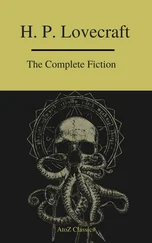May I come back to what I said before? This is the whole of Christianity. There is nothing else. It is so easy to get muddled about that. It is easy to think that the Church has a lot of different objects—education, building, missions, holding services. Just as it is easy to think the State has a lot of different objects—military, political, economic, and what not. But in a way things are much simpler than that. The State exists simply to promote and to protect the ordinary happiness of human beings in this life. A husband and wife chatting over a fire, a couple of friends having a game of darts in a pub, a man reading a book in his own room or digging in his own garden—that is what the State is there for. And unless they are helping to increase and prolong and protect such moments, all the laws, parliaments, armies, courts, police, economics, etc., are simply a waste of time. In the same way the Church exists for nothing else but to draw men into Christ, to make them little Christs. If they are not doing that, all the cathedrals, clergy, missions, sermons, even the Bible itself, are simply a waste of time. God became Man for no other purpose. It is even doubtful, you know, whether the whole universe was created for any other purpose. It says in the Bible that the whole universe was made for Christ and that everything is to be gathered together in Him. I do not suppose any of us can understand how this will happen as regards the whole universe. We do not know what (if anything) lives in the parts of it that are millions of miles away from this Earth. Even on this Earth we do not know how it applies to things other than men. After all, that is what you would expect. We have been shown the plan only in so far as it concerns ourselves.
I sometimes like to imagine that I can just see how it might apply to other things. I think I can see how the higher animals are in a sense drawn into Man when he loves them and makes them (as he does) much more nearly human than they would otherwise be. I can even see a sense in which the dead things and plants are drawn into Man as he studies them and uses and appreciates them. And if there were intelligent creatures in other worlds they might do the same with their worlds. It might be that when intelligent creatures entered into Christ they would, in that way, bring all the other things in along with them. But I do not know: it is only a guess.
What we have been told is how we men can be drawn into Christ—can become part of that wonderful present which the young Prince of the universe wants to offer to His Father—that present which is Himself and therefore us in Him. It is the only thing we were made for. And there are strange, exciting hints in the Bible that when we are drawn in, a great many other things in Nature will begin to come right. The bad dream will be over: it will be morning.
I find a good many people have been bothered by what I said in the previous chapter about Our Lord’s words, ‘Be ye perfect’. Some people seem to think this means ‘Unless you are perfect, I will not help you’; and as we cannot be perfect, then, if He meant that, our position is hopeless. But I do not think He did mean that. I think He meant ‘The only help I will give is help to become perfect. You may want something less: but I will give you nothing less.’
Let me explain. When I was a child I often had toothache, and I knew that if I went to my mother she would give me something which would deaden the pain for that night and let me get to sleep. But I did not go to my mother—at least, not till the pain became very bad. And the reason I did not go was this. I did not doubt she would give me the aspirin; but I knew she would also do something else. I knew she would take me to the dentist next morning. I could not get what I wanted out of her without getting something more, which I did not want. I wanted immediate relief from pain: but I could not get it without having my teeth set permanently right. And I knew those dentists: I knew they started fiddling about with all sorts of other teeth which had not yet begun to ache. They would not let sleeping dogs lie, if you gave them an inch they took an ell.
Now, if I may put it that way, Our Lord is like the dentists. If you give Him an inch, He will take an ell. Dozens of people go to Him to be cured of some one particular sin which they are ashamed of (like masturbation or physical cowardice) or which is obviously spoiling daily life (like bad temper or drunkenness). Well, He will cure it all right: but He will not stop there. That may be all you asked; but if once you call Him in, He will give you the full treatment.
That is why He warned people to ‘count the cost’ before becoming Christians. ‘Make no mistake,’ He says, ‘if you let me, I will make you perfect. The moment you put yourself in My hands, that is what you are in for. Nothing less, or other, than that. You have free will, and if you choose, you can push Me away. But if you do not push Me away, understand that I am going to see this job through. Whatever suffering it may cost you in your earthly life, whatever inconceivable purification it may cost you after death, whatever it costs Me, I will never rest, nor let you rest, until you are literally perfect—until my Father can say without reservation that He is well pleased with you, as He said He was well pleased with me. This I can do and will do. But I will not do anything less.’
And yet—this is the other and equally important side of it—this Helper who will, in the long run, be satisfied with nothing less than absolute perfection, will also be delighted with the first feeble, stumbling effort you make tomorrow to do the simplest duty. As a great Christian writer (George MacDonald) pointed out, every father is pleased at the baby’s first attempt to walk: no father would be satisfied with anything less than a firm, free, manly walk in a grown-up son. In the same way, he said, ‘God is easy to please, but hard to satisfy.’
The practical upshot is this. On the one hand, God’s demand for perfection need not discourage you in the least in your present attempts to be good, or even in your present failures. Each time you fall He will pick you up again. And He knows perfectly well that your own efforts are never going to bring you anywhere near perfection. On the other hand, you must realise from the outset that the goal towards which He is beginning to guide you is absolute perfection; and no power in the whole universe, except you yourself, can prevent Him from taking you to that goal. That is what you are in for. And it is very important to realise that. If we do not, then we are very likely to start pulling back and resisting Him after a certain point. I think that many of us, when Christ has enabled us to overcome one or two sins that were an obvious nuisance, are inclined to feel (though we do not put it into words) that we are now good enough. He has done all we wanted Him to do, and we should be obliged if He would now leave us alone. As we say ‘I never expected to be a saint, I only wanted to be a decent ordinary chap.’ And we imagine when we say this that we are being humble.
But this is the fatal mistake. Of course we never wanted, and never asked, to be made into the sort of creatures He is going to make us into. But the question is not what we intended ourselves to be, but what He intended us to be when He made us. He is the inventor, we are only the machine. He is the painter, we are only the picture. How should we know what He means us to be like? You see, He has already made us something very different from what we were. Long ago, before we were born, when we were inside our mothers’ bodies, we passed through various stages. We were once rather like vegetables, and once rather like fish: it was only at a later stage that we became like human babies. And if we had been conscious at those earlier stages, I daresay we should have been quite contented to stay as vegetables or fish—should not have wanted to be made into babies. But all the time He knew His plan for us and was determined to carry it out. Something the same is now happening at a higher level. We may be content to remain what we call ‘ordinary people’: but He is determined to carry out a quite different plan. To shrink back from that plan is not humility: it is laziness and cowardice. To submit to it is not conceit or megalomania; it is obedience.
Читать дальше












